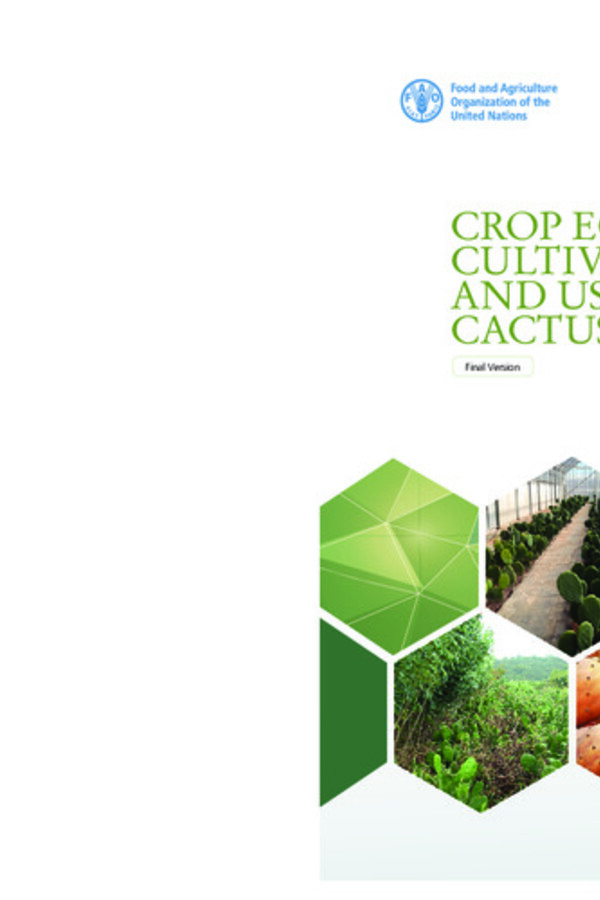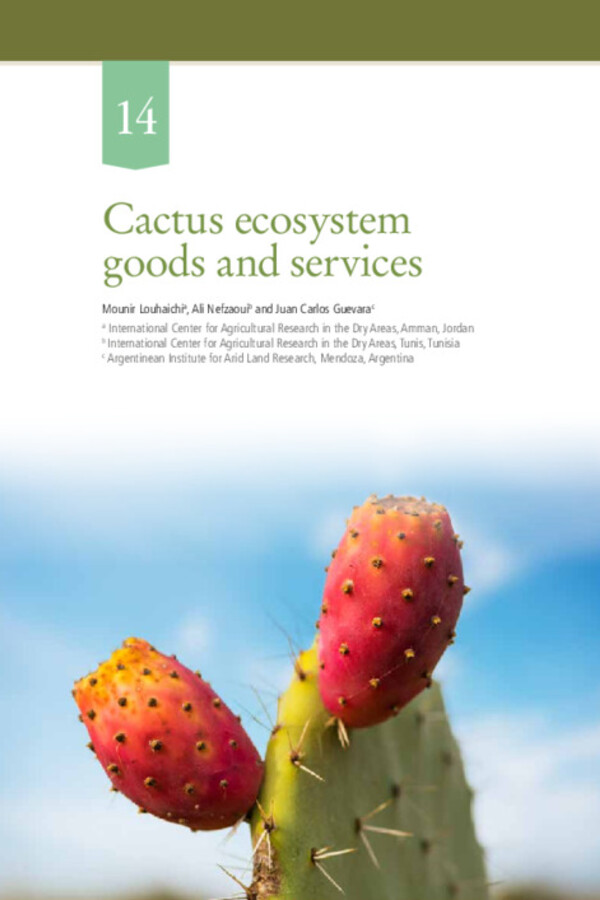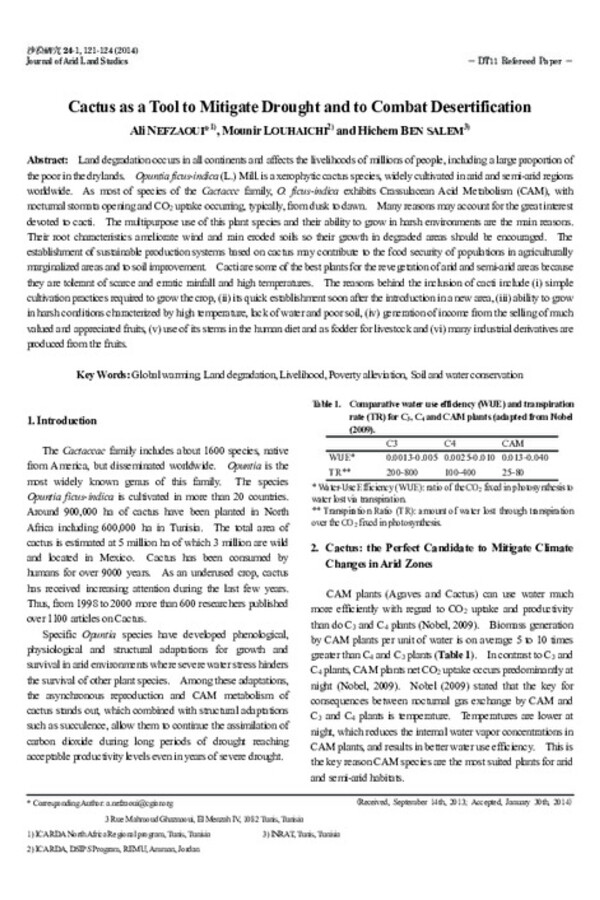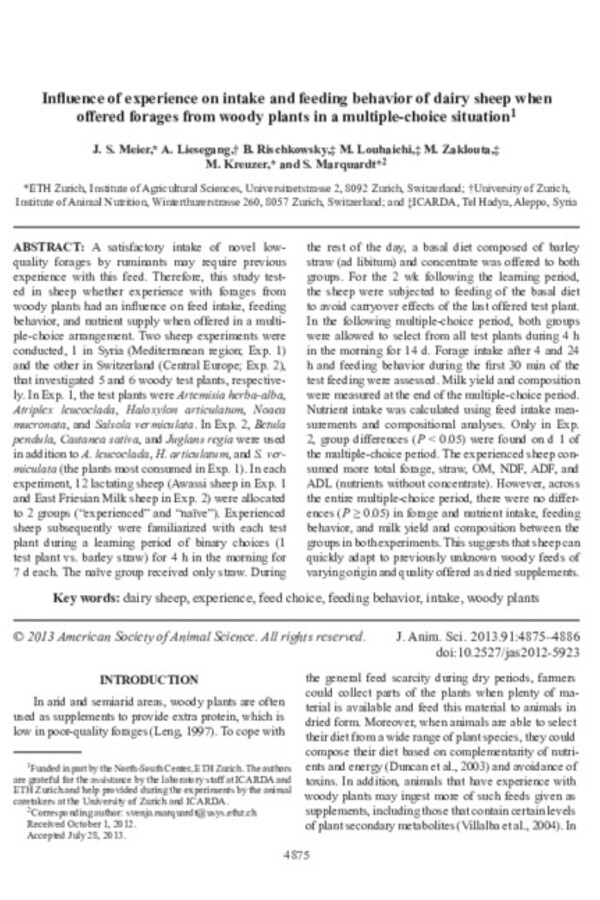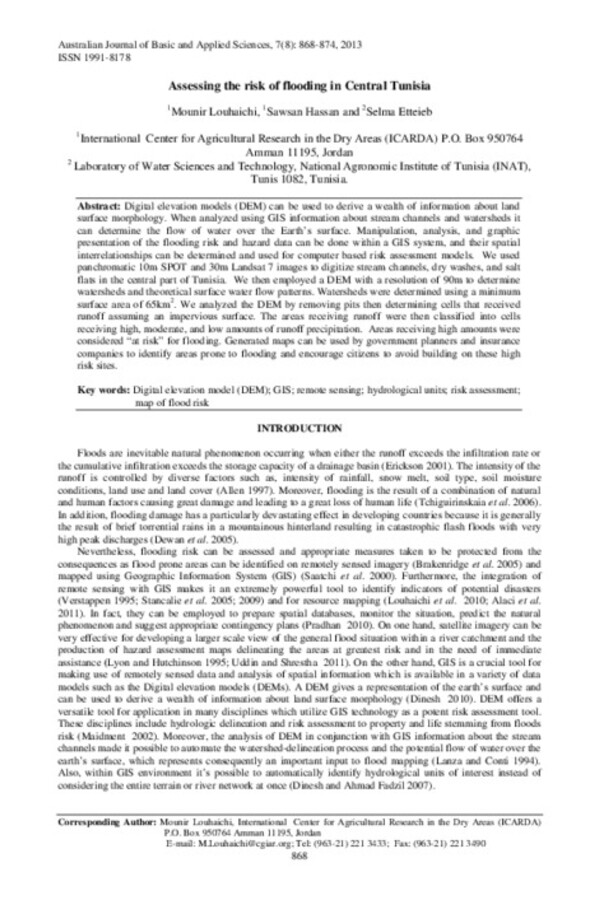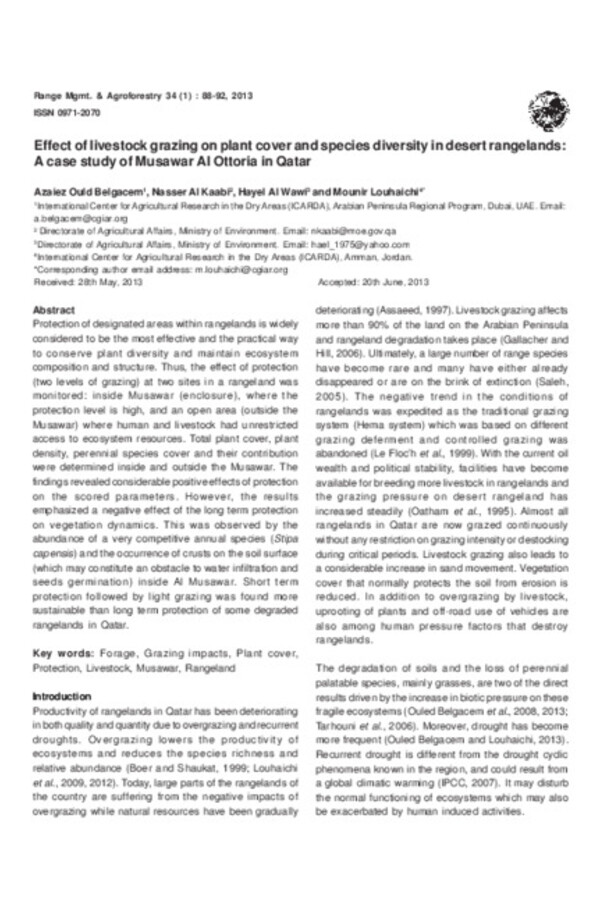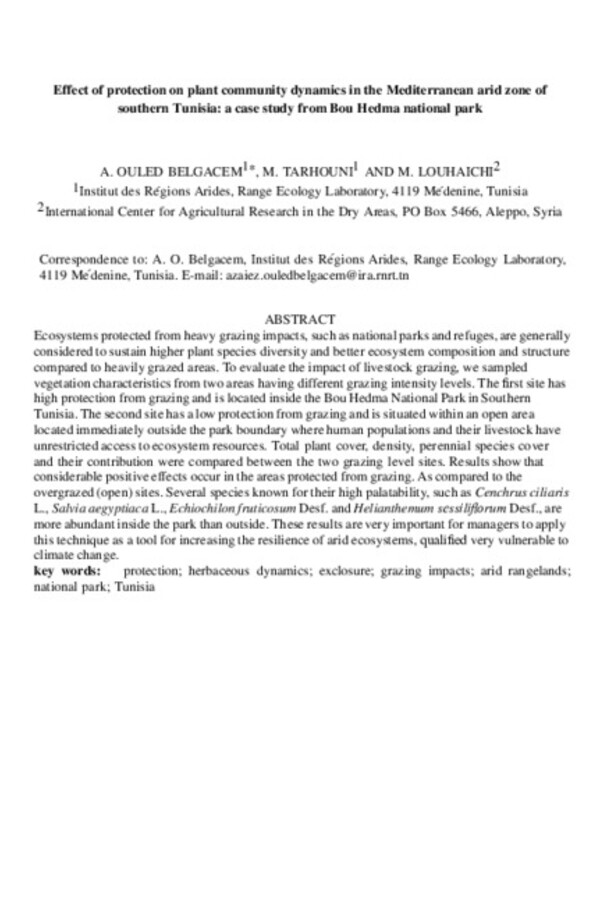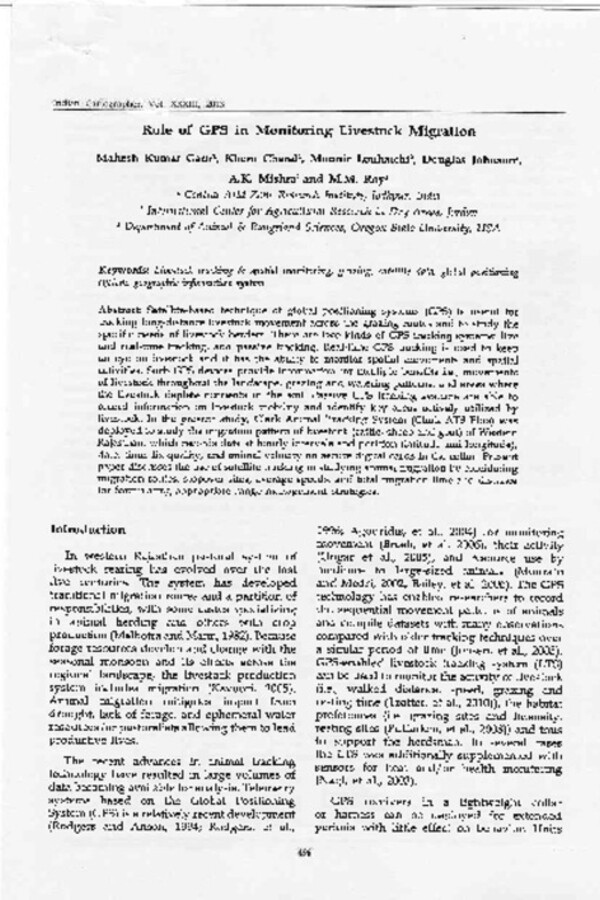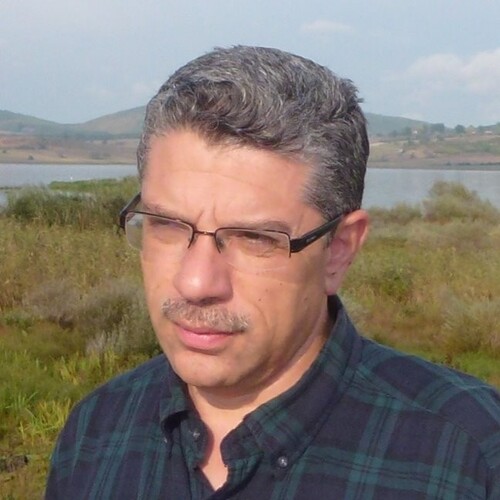
Mounir Louhaichi
Dr. Mounir Louhaichi has more than 25 years of experience in rangeland ecology and management, including over 10 years conducting research on alternative technologies for improved natural resource management.
is research focuses on documenting the indigenous knowledge of pastoral communities, rangeland restoration and governance; developing non-destructive techniques for monitoring and assessing rangeland plant communities; promoting agro-forestry practices and cactus pear as a multi-purpose species in agro-pastoral livelihood systems; and characterizing key rangeland species.
Prior to joining ICARDA in 2008, Dr. Louhaichi was a researcher at Oregon State University in the United States where he also worked with the Bureau of Land Management, the US Forest Service, US Geological Survey, and the US Department of Agriculture on various projects.
Dr. Louhaichi has authored more than 150 scientific and technical publications, including journal articles and training manuals. He is a certified GIS professional with a focus on landscape ecology and its applications for monitoring and assessing rangeland vegetation, herd movement across landscapes, and the impacts of climate change.
In 2013, Dr. Louhaichi was nominated deputy general coordinator for the FAO-ICARDA Cactus Network in Palermo, Italy. In 2015, he received an honorary faculty appointment from Oregon State University’s Department of Animal and Range Sciences, and in 2016 was elected vice president of the International Rangeland Congress in Saskatoon. He is a recipient of several awards and honors. Dr. Louhaichi holds a Ph.D. in rangeland ecology and management from Oregon State University.
Mounir Louhaichi's Publications
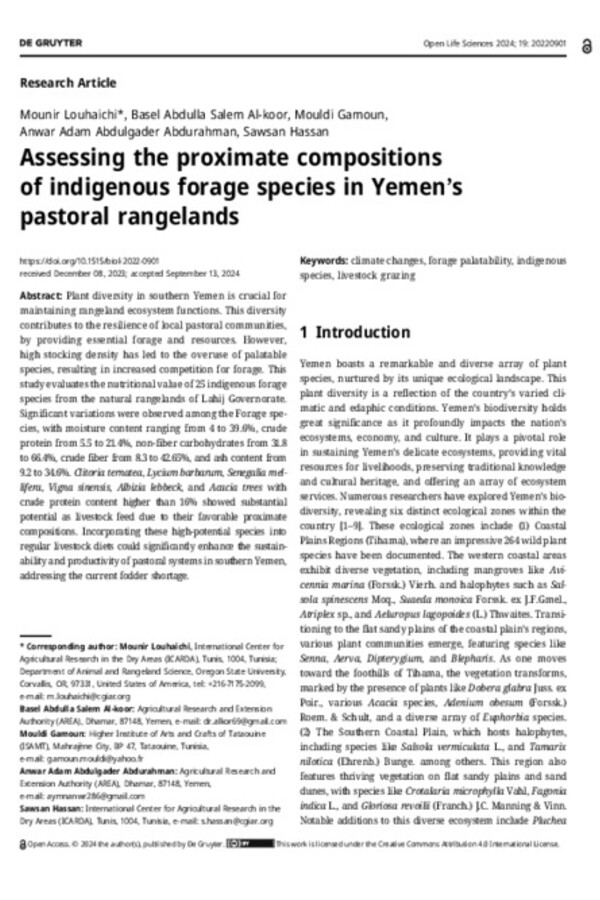
Assessing the proximate compositions of indigenous forage species in Yemen’s pastoral rangelands
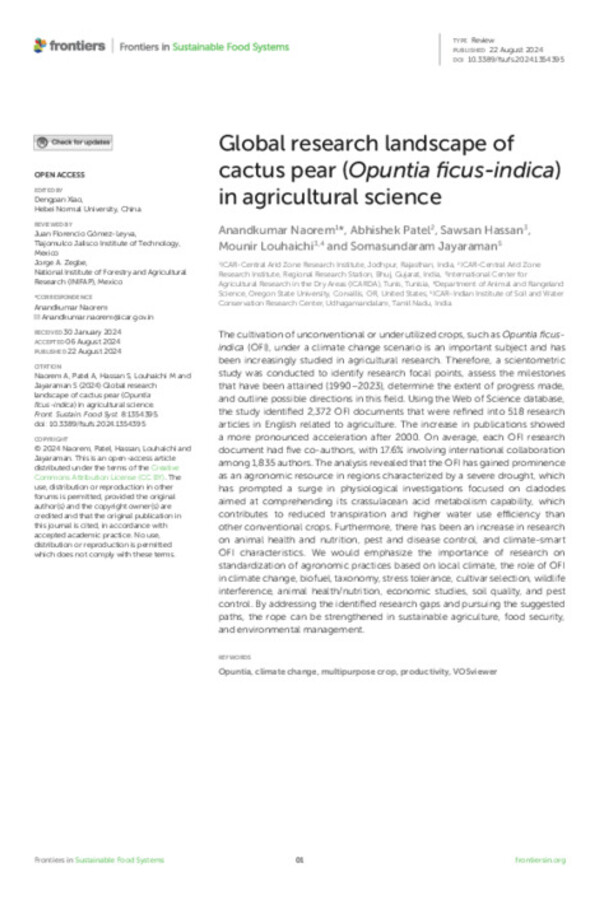
Global research landscape of cactus pear (Opuntia ficus-indica) in agricultural science
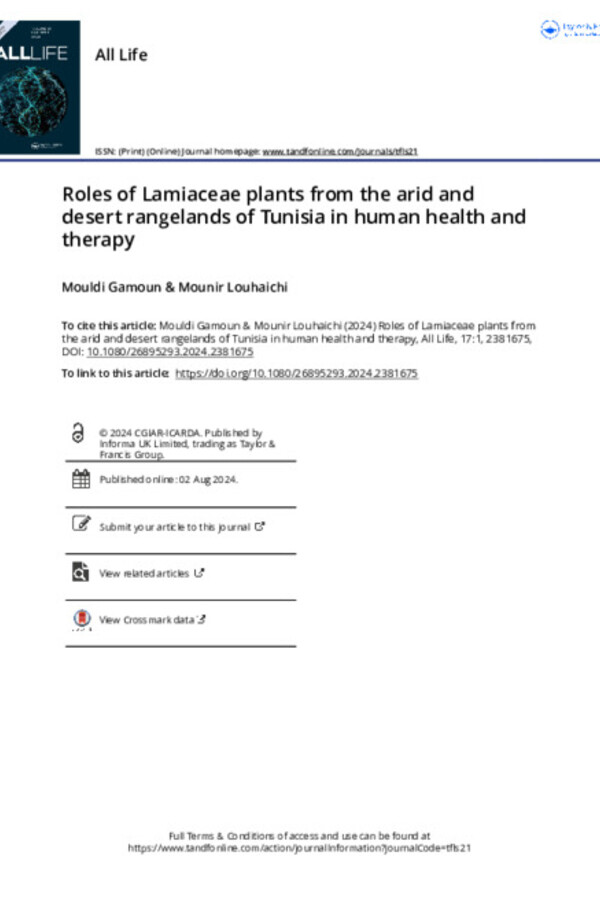
Roles of Lamiaceae plants from the arid and desert rangelands of Tunisia inhuman health and therapy
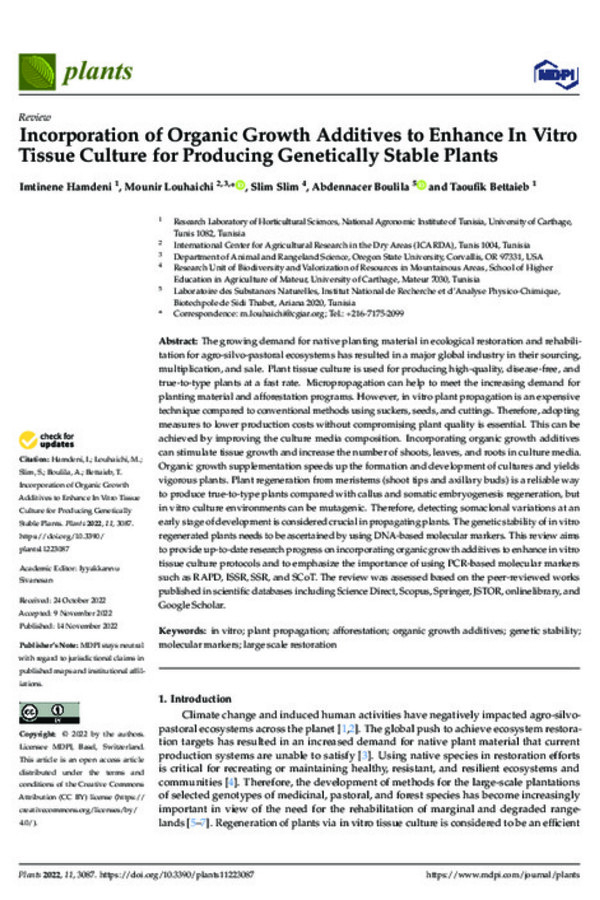
Incorporation of Organic Growth Additives to Enhance In Vitro Tissue Culture for Producing Genetically Stable Plants

Spineless fodder cactus under different land use and production systems in rainfed semi-arid tropics of India

Economic valuation of cactus pear production in semi-arid regions of Tunisia

Response of cactus pear (Opuntia ficus-indica Mill.) to boron and farmyard manure application under arid soils conditions in Kutch, Gujarat

Impact of awareness campaign for enhancing adoption of new cactus pear accessions in Jordan
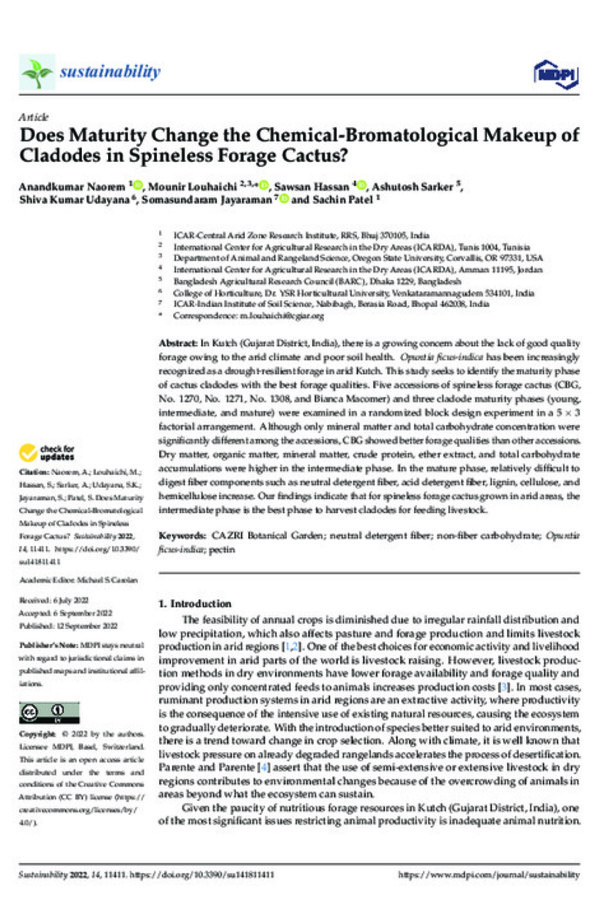
Does Maturity Change the Chemical-Bromatological Makeup of Cladodes in Spineless Forage Cactus?

Vegetation dynamics under different management interventions in arid rangelands of Rajasthan

Predicted farmer uptake of new agricultural practices: case of silvo-pastoral technologies in Rajasthan, India
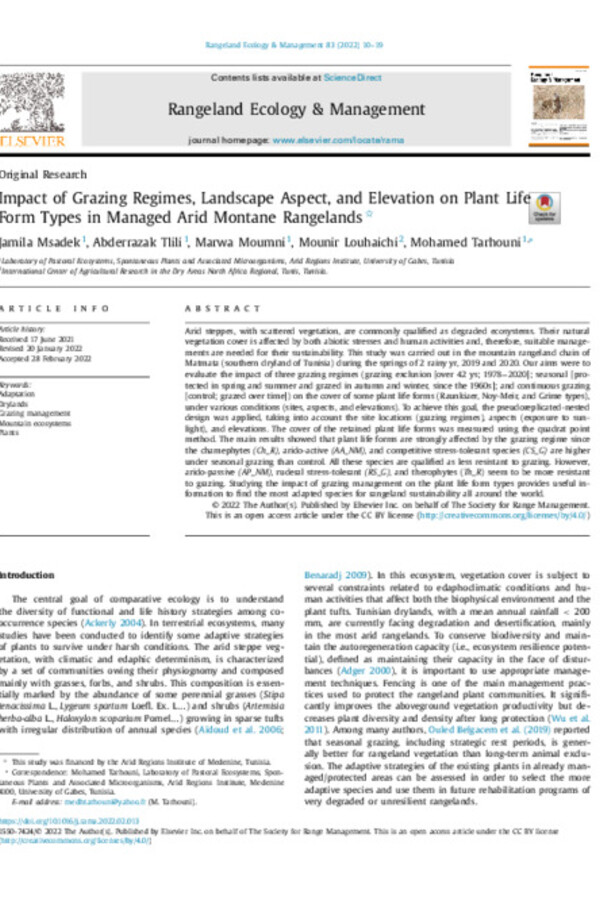
Impact of Grazing Regimes, Landscape Aspect, and Elevation on Plant Life Form Types in Managed Arid Montane Rangelands
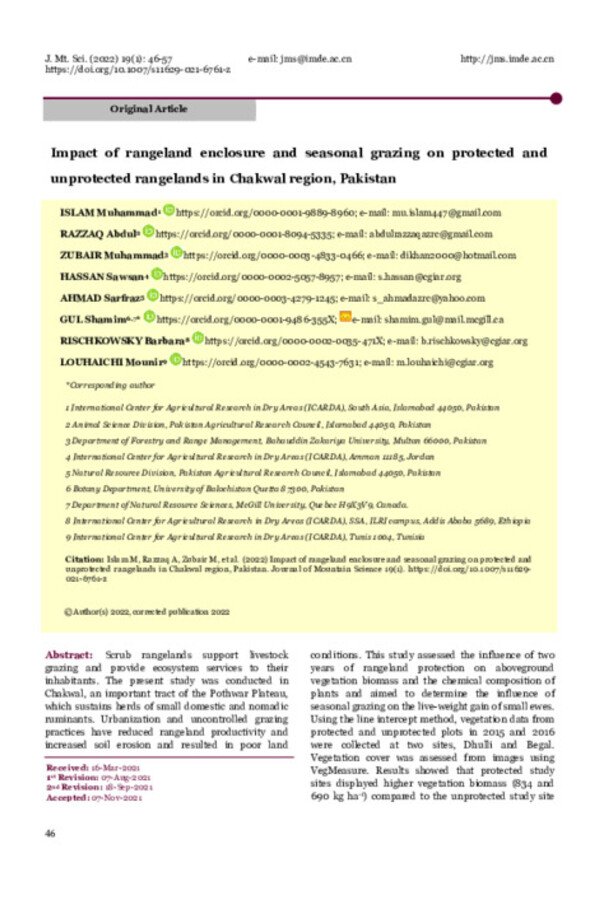
Impact of rangeland enclosure and seasonal grazing on protected and unprotected rangelands in Chakwal region, Pakistan
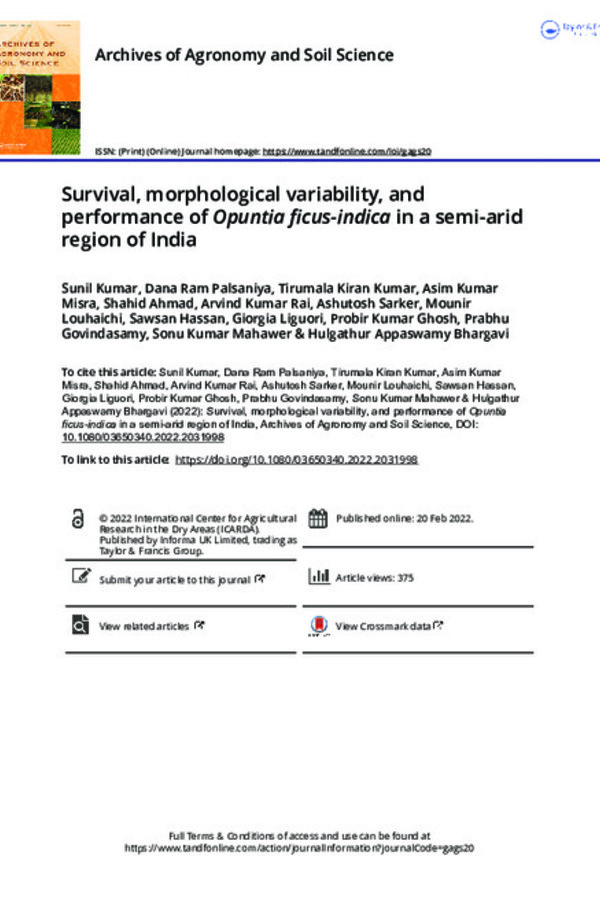
Survival, morphological variability, and performance of Opuntia ficus-indica in a semi-arid region of India
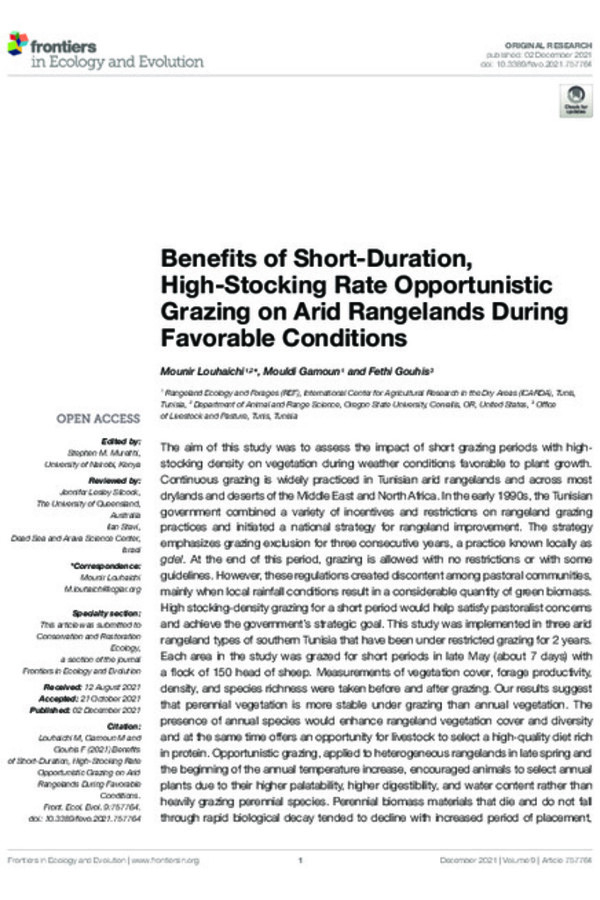
Benefits of Short-Duration, High-Stocking Rate Opportunistic Grazing on Arid Rangelands During Favorable Conditions
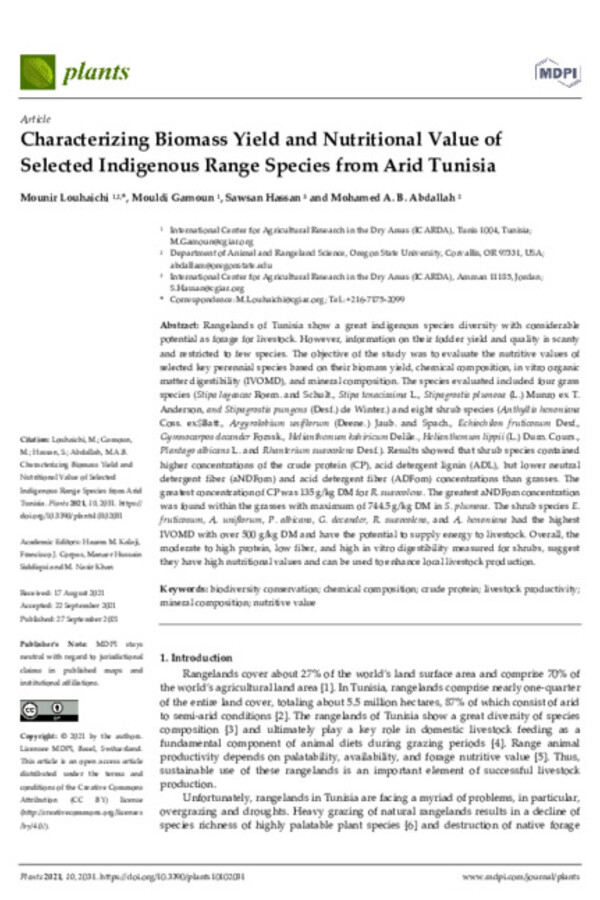
Characterizing biomass yield and nutritional value of selected indigenous range species from arid Tunisia

Aloe vera L. (Asphodelaceae): Supplementation of in-vitro culture medium with Aloe vera gel for production of genetically stable plants
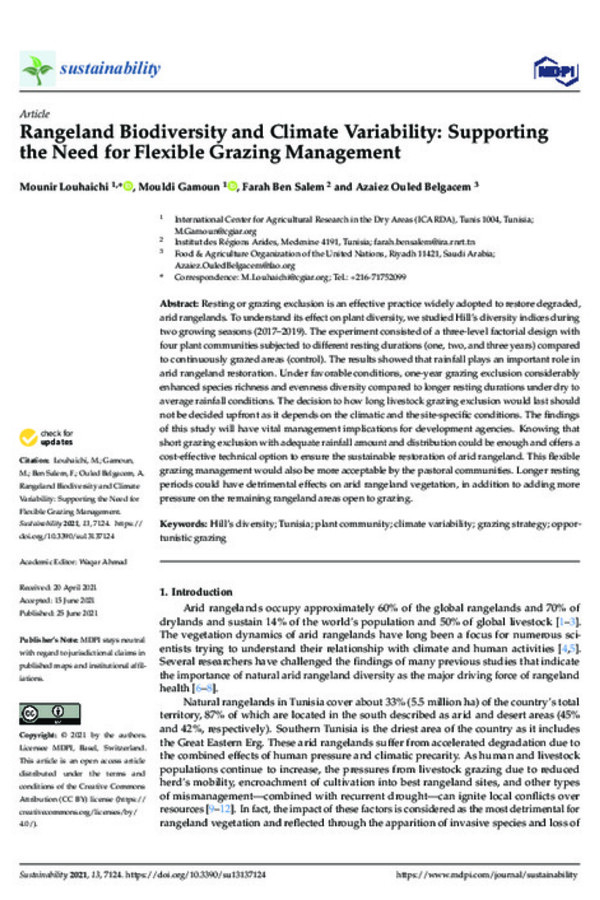
Rangeland Biodiversity and Climate Variability: Supporting the Need for Flexible Grazing Management
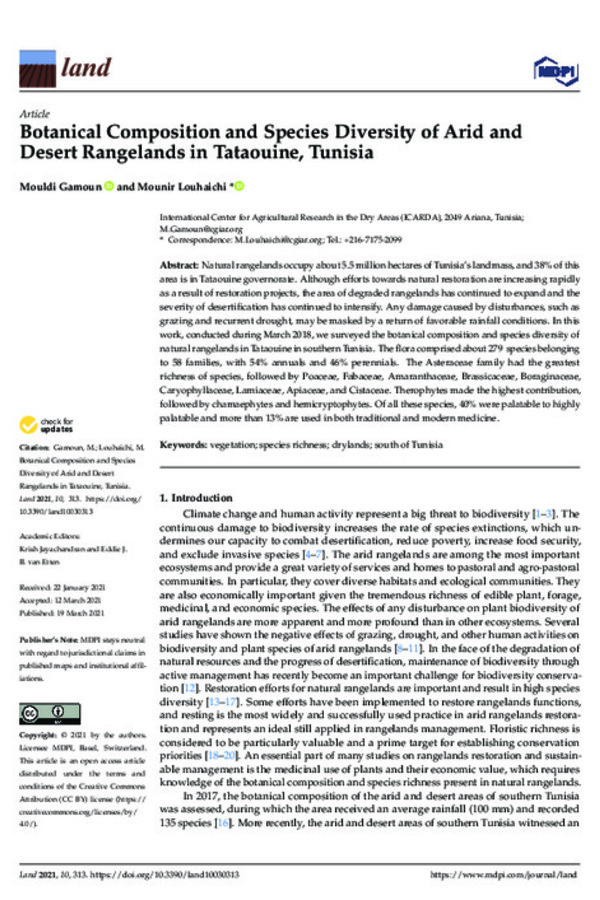
Botanical Composition and Species Diversity of Arid and Desert Rangelands in Tataouine, Tunisia
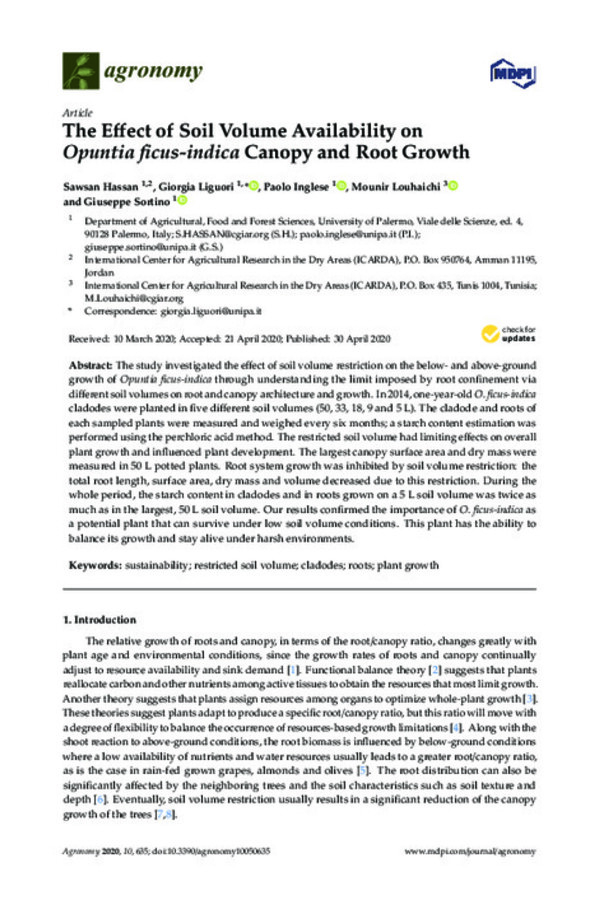
The Effect of Soil Volume Availability on Opuntia ficus-indica Canopy and Root Growth

Effect of grass reseeding on dry matter production and species composition of a community rangeland in Jodhpur, Rajasthan

Root growth and soil carbon turnover in Opuntia ficus-indica as affected by soil volume availability
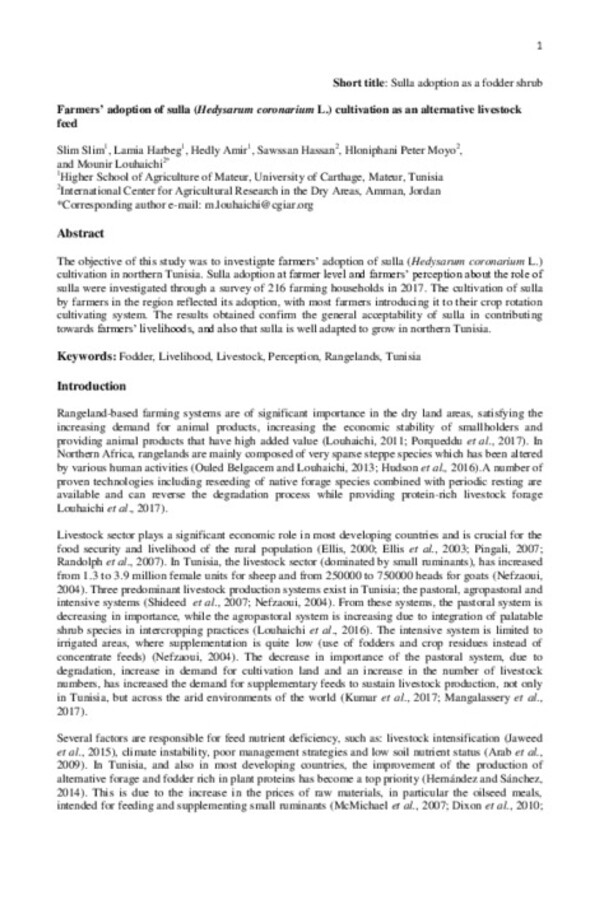
Farmers’ adoption of sulla (Hedysarum coronarium L.) cultivation as an alternative livestock feed
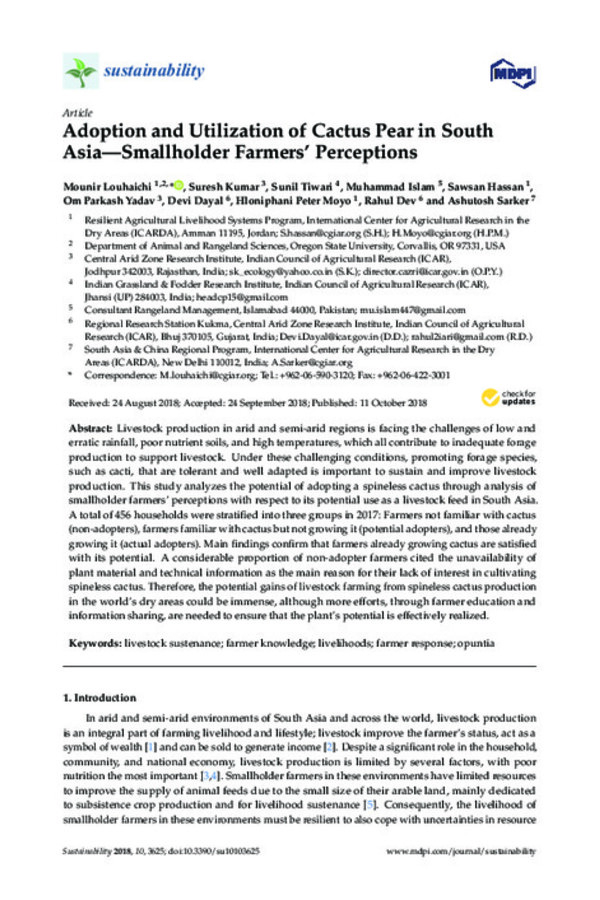
Adoption and Utilization of Cactus Pear in South Asia—Smallholder Farmers’ Perceptions

Comparing yield and growth characteristics of four pastoral plant species under two salinity soil levels
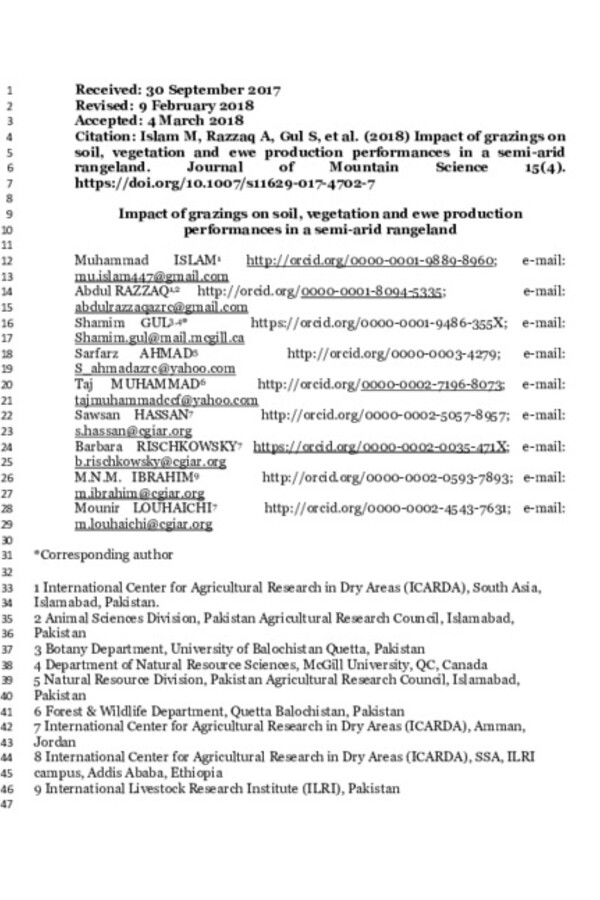
Impact of grazing on soil, vegetation and ewe production performances in a semi-arid rangeland

Is long-term protection useful for the regeneration of disturbed plant communities in dry areas?

Seed germination behaviour as influenced by physical and chemical treatments in Grewia tenax (Forssk.)
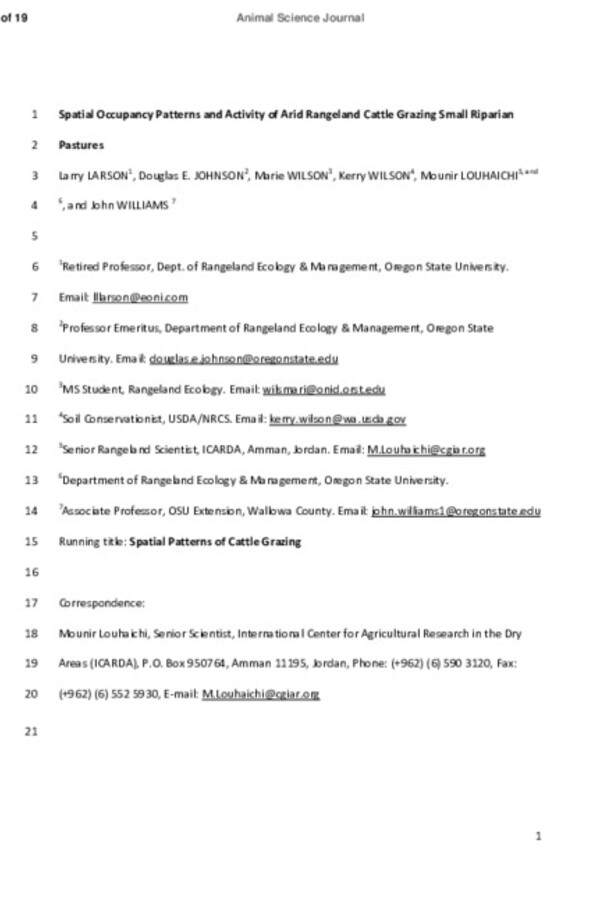
Spatial Occupancy Patterns and Activity of Arid Rangeland Cattle Grazing Small Riparian Pastures
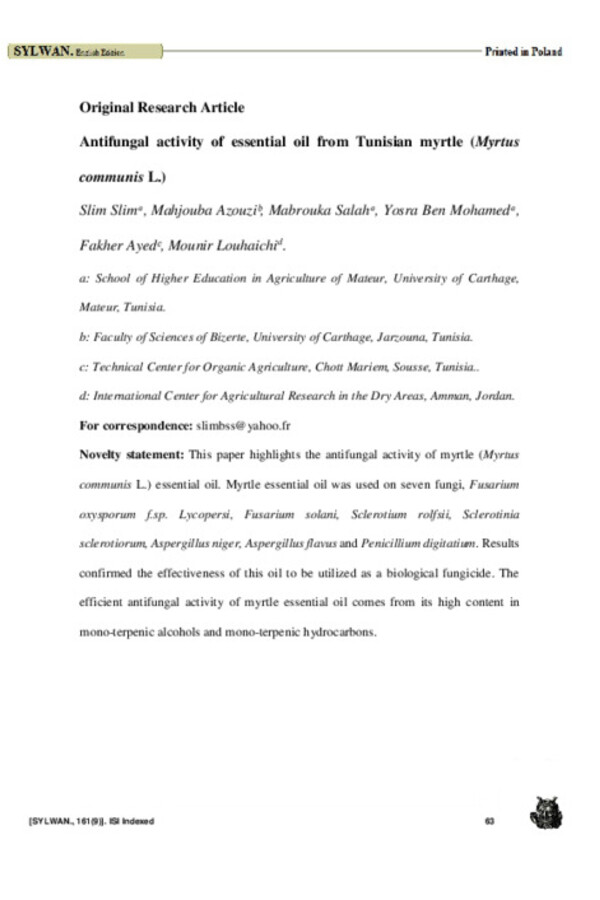
Antifungal activity of essential oil from Tunisian myrtle (Myrtus communis L.)
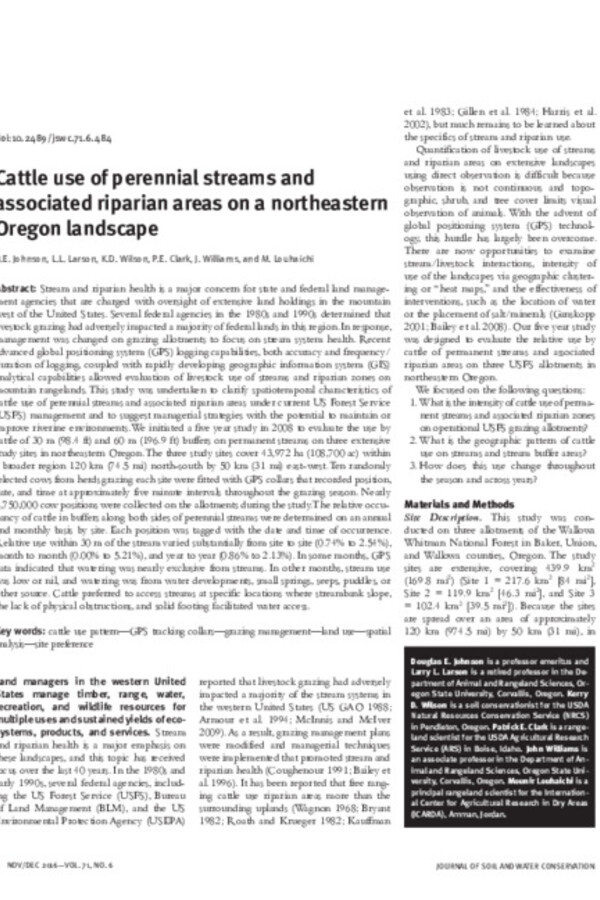
Cattle use of perennial streams and associated riparian areas on a northeastern Oregon landscape
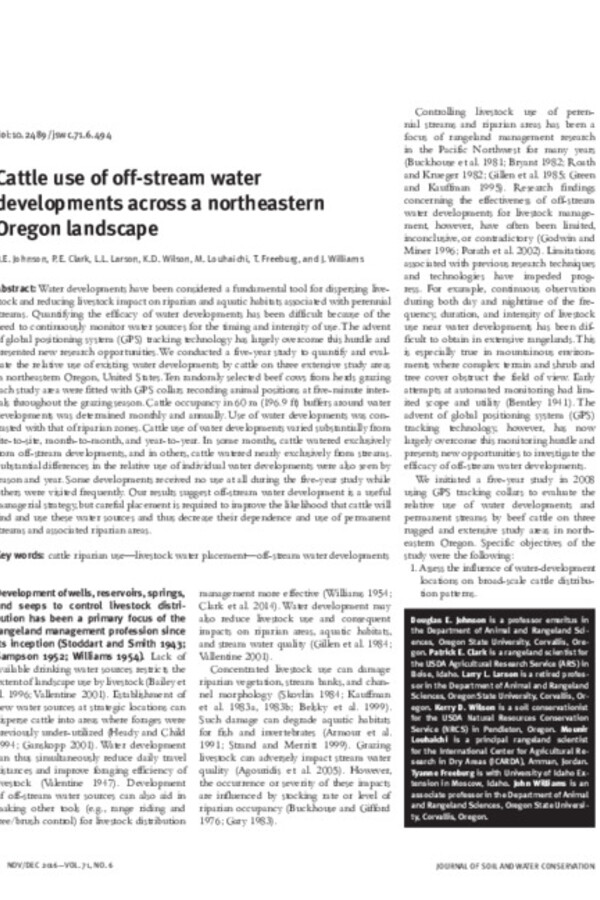
Cattle use of off-stream water developments across a northeastern Oregon landscape
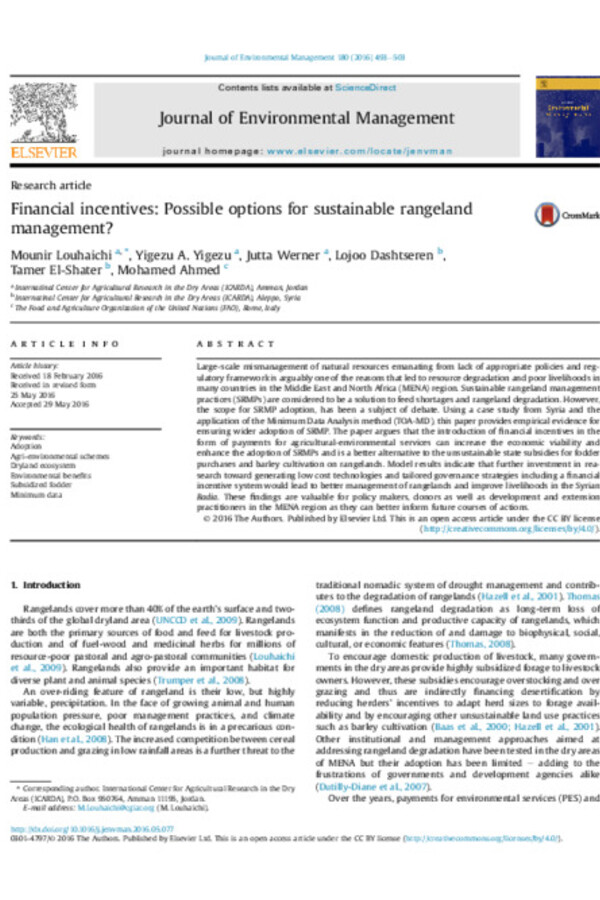
Financial incentives: Possible options for sustainable rangeland management?

A Knowledge-Based Approach for Mapping Land Degradation in the Arid Rangelands of North Africa

Measurement of the aboveground biomass of some rangeland species using a digital nondestructive technique

Effects of salinity and drought on early seedling growth and survival of Artemisia herbaalba
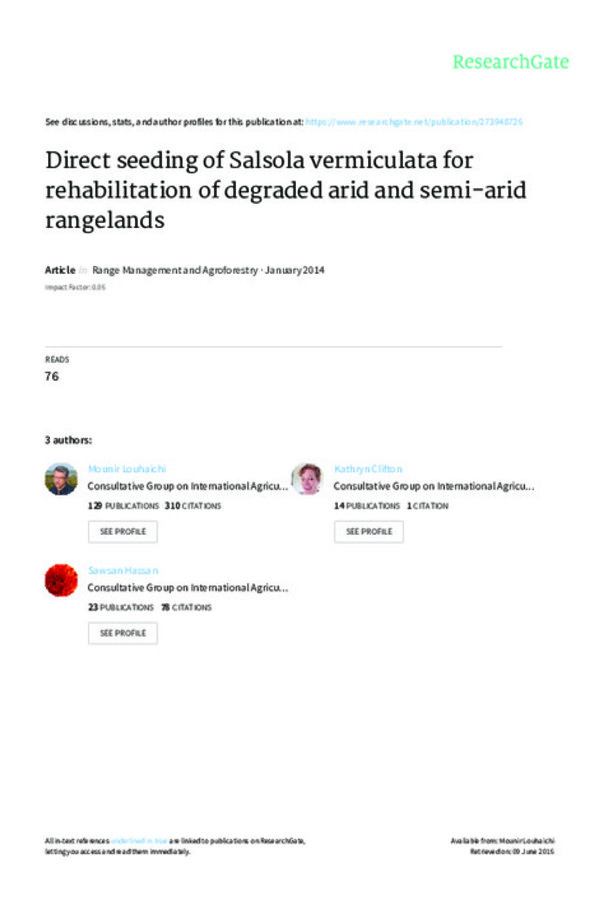
Direct seeding of Salsola vermiculata for rehabilitation of degraded arid and semi-arid rangelands
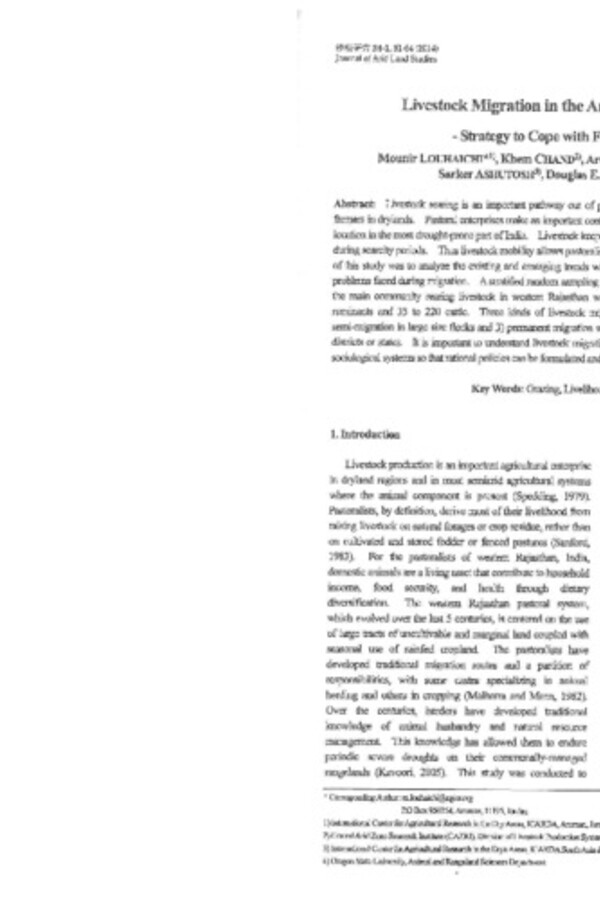
Livestock Migration in the Arid Region of Rajasthan (India) - Strategy to Cope with Fodder and Water Scarcity -
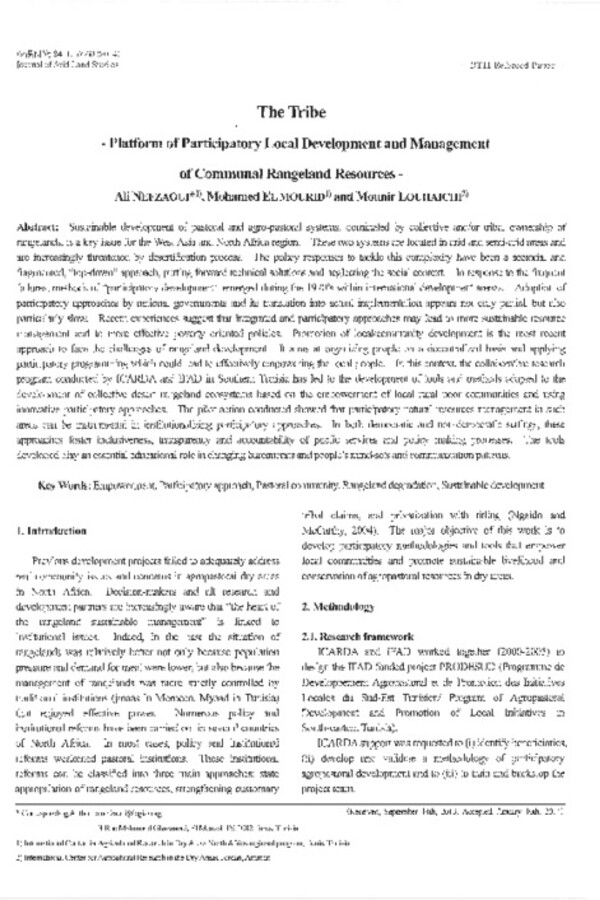
The Tribe - Platform of Participatory Local Development and Management of Communal Rangeland Resources

Mediterranean forest mapping using hyper-spectral satellite imagery
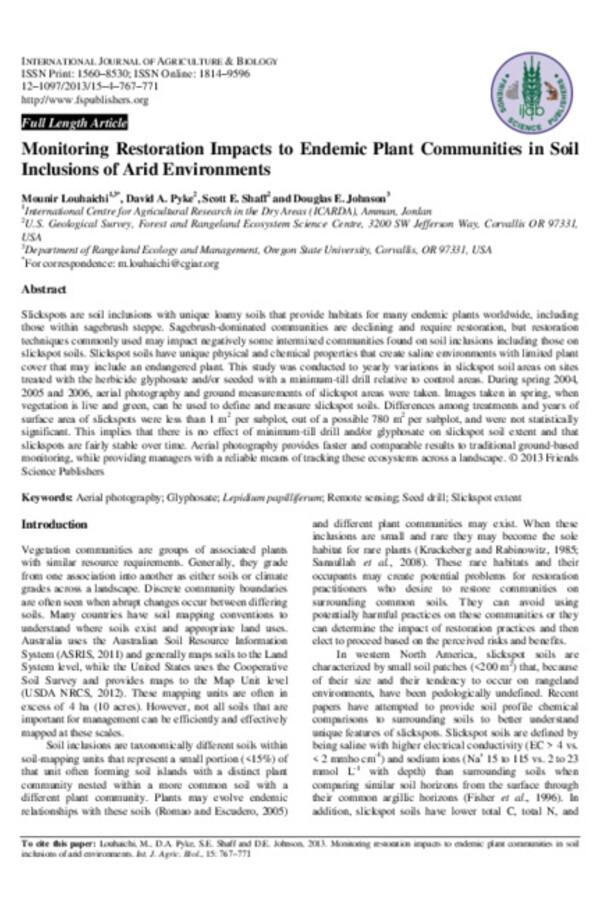
Monitoring Restoration Impacts to Endemic Plant Communities in Soil Inclusions of Arid Environments
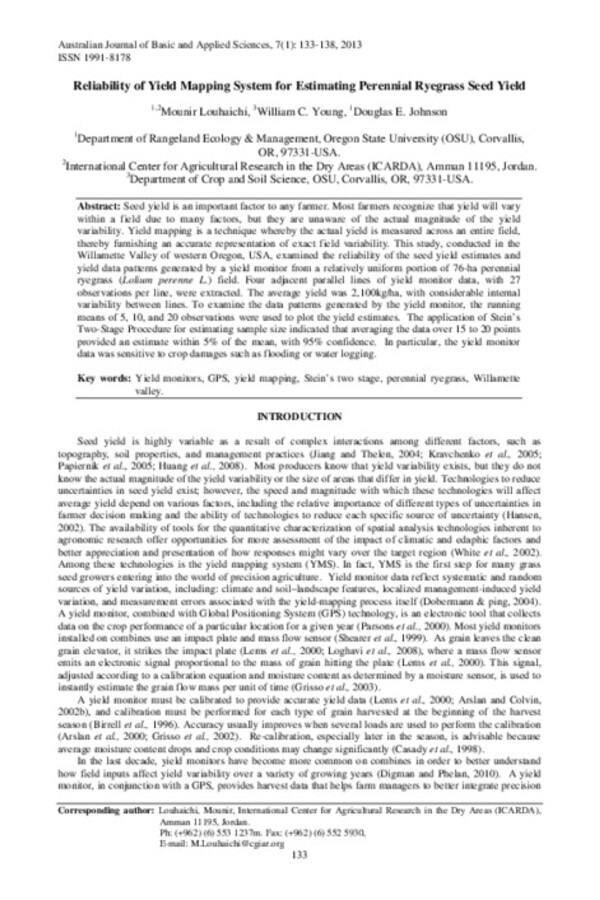
Reliability of Yield Mapping System for Estimating Perennial Ryegrass Seed Yield
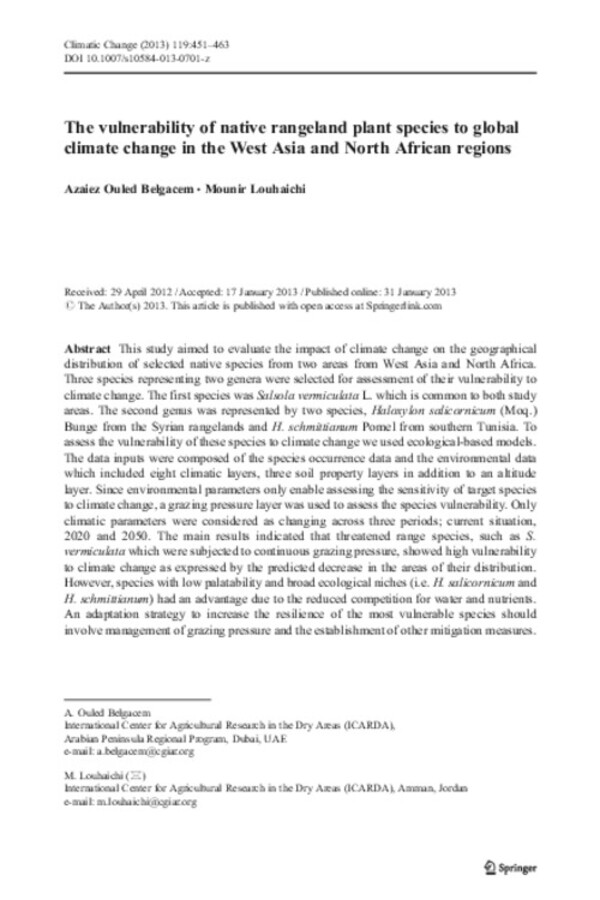
The vulnerability of native rangeland plant species to global climate change in the West Asia and North African regions
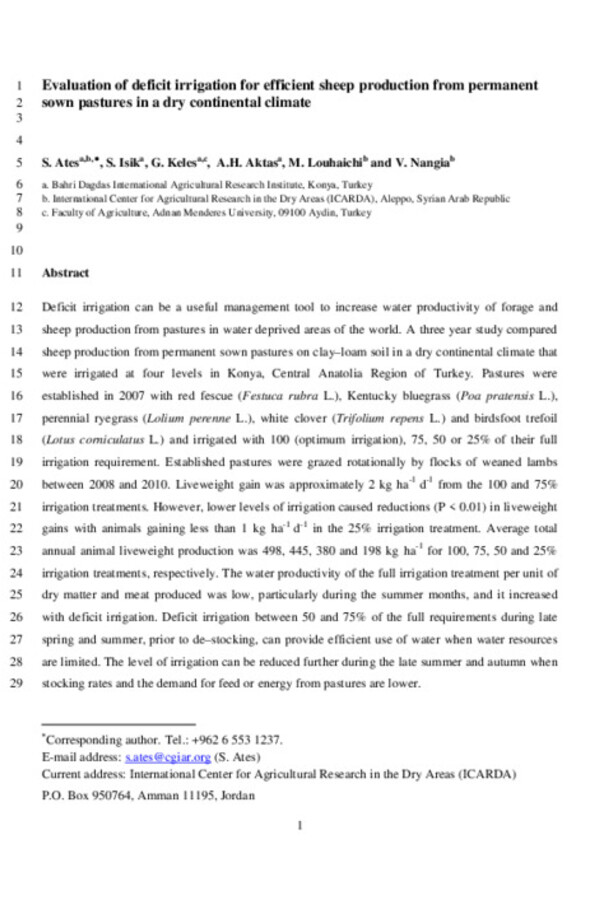
Evaluation of deficit irrigation for efficient sheep production from permanent sown pastures in a dry continental climate
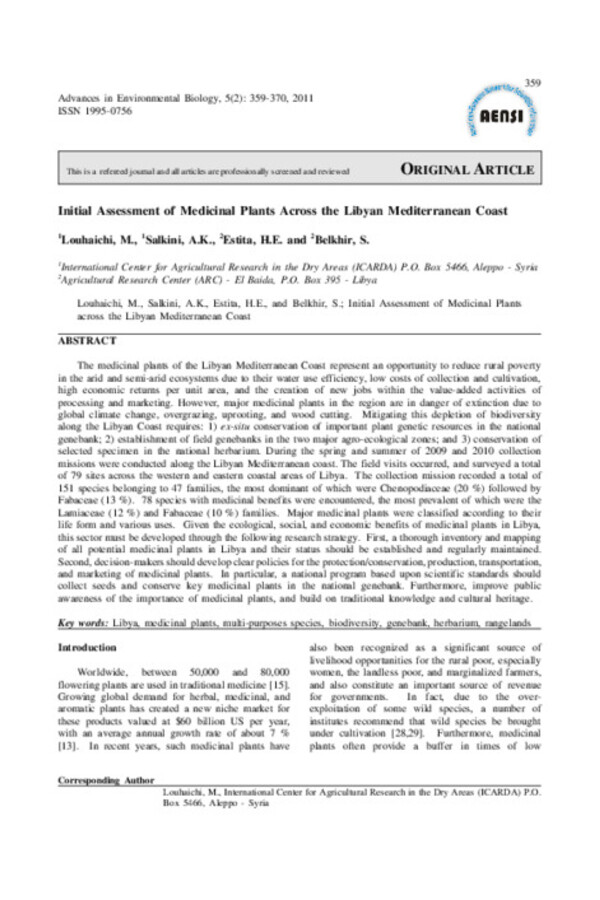
Initial Assessment of Medicinal Plants Across the Libyan Mediterranean Coast
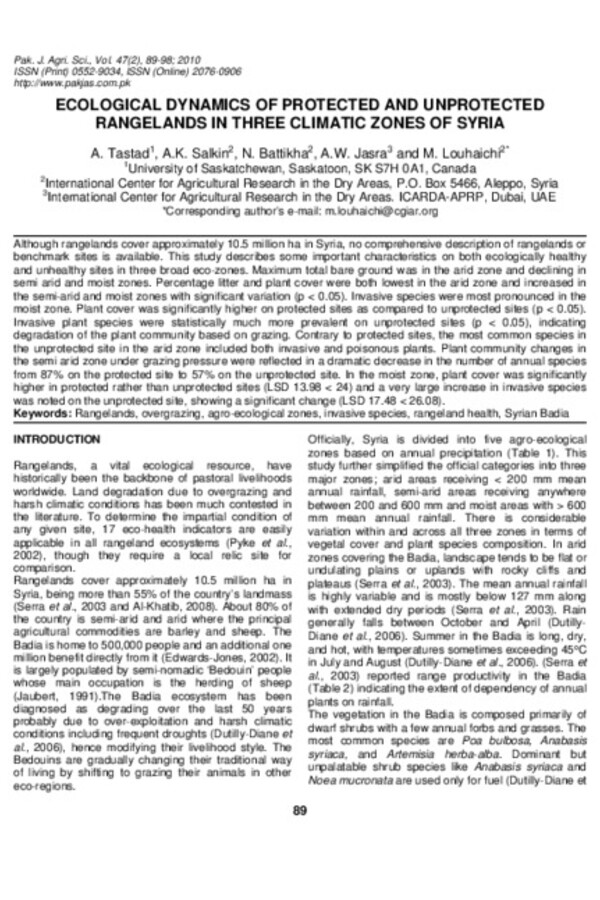
Ecological dynamics of protected and unprotected rangelands in three climatic zones of Syria
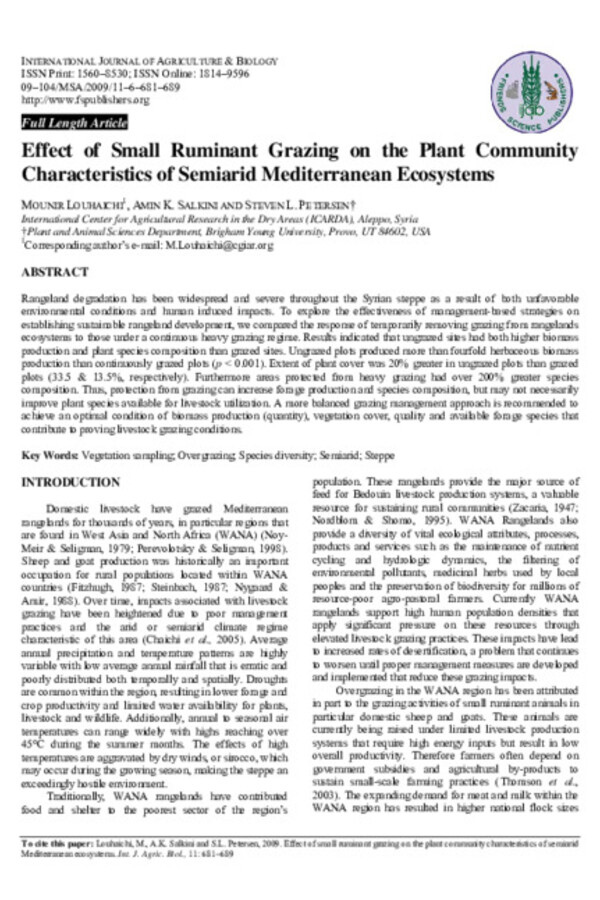


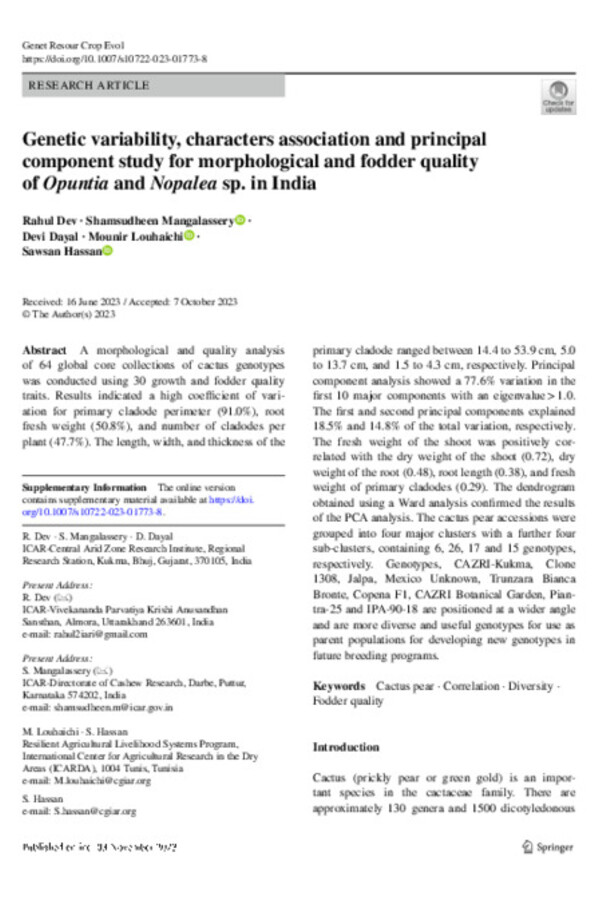

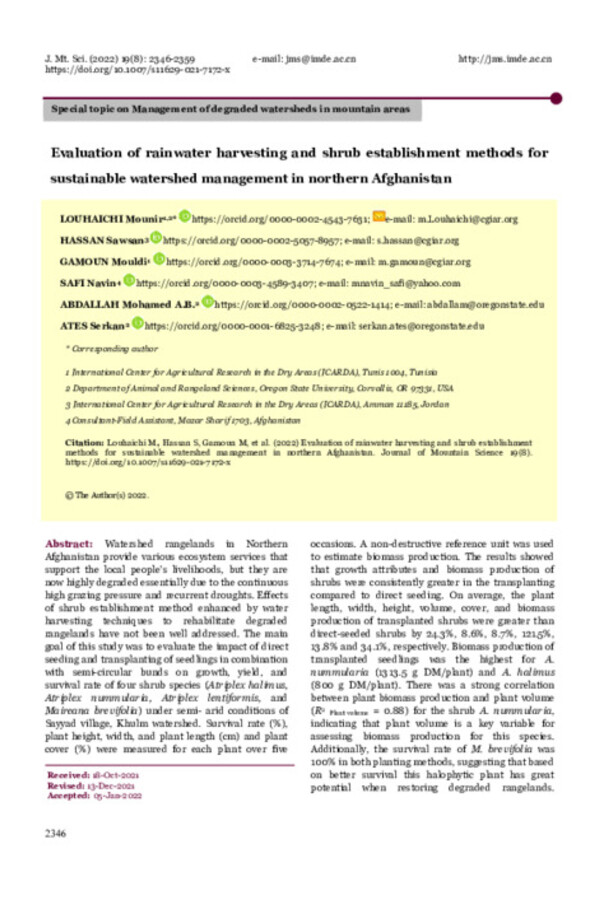
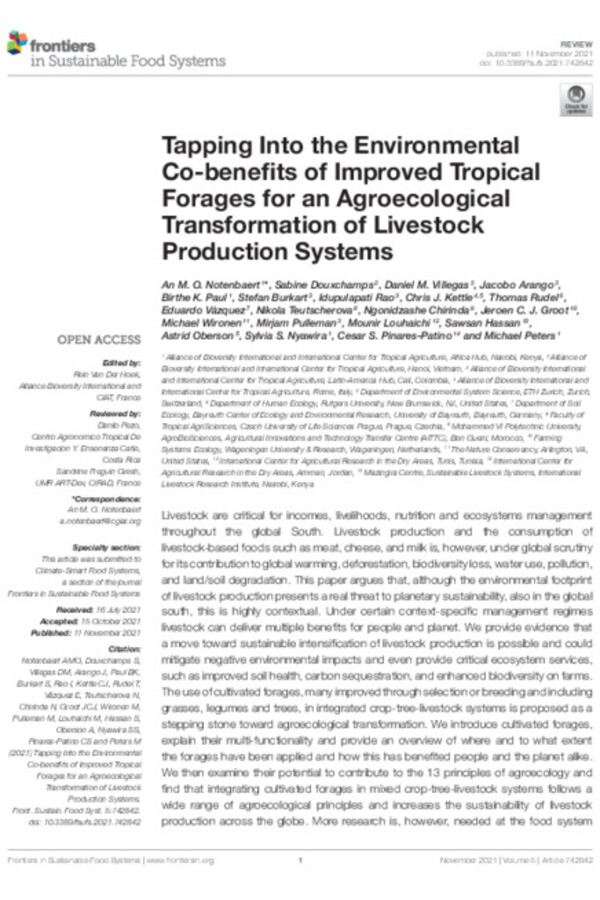
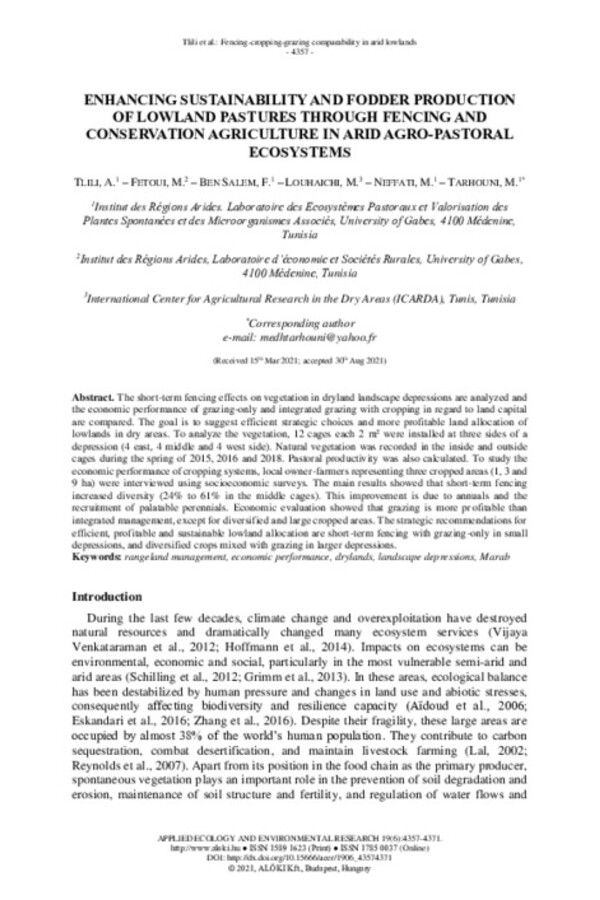
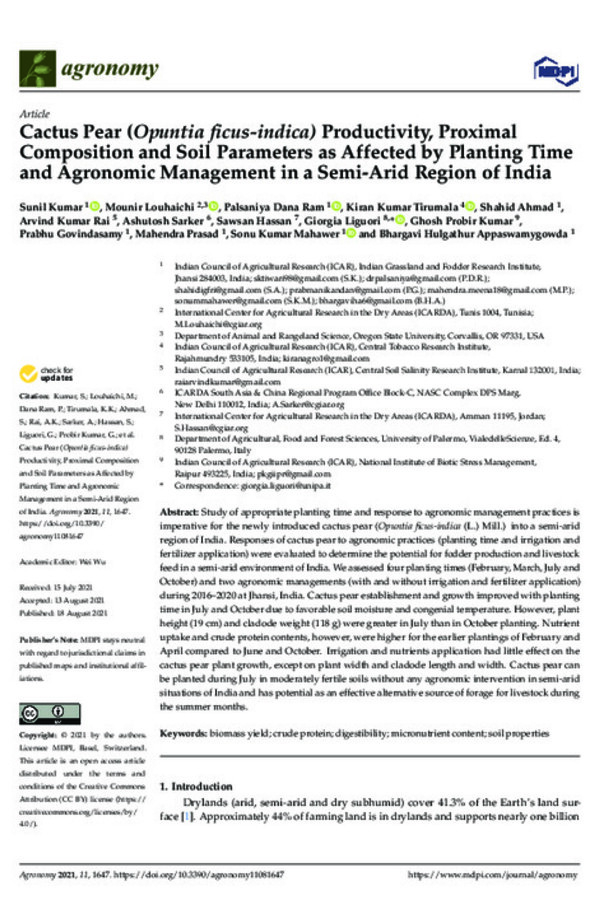
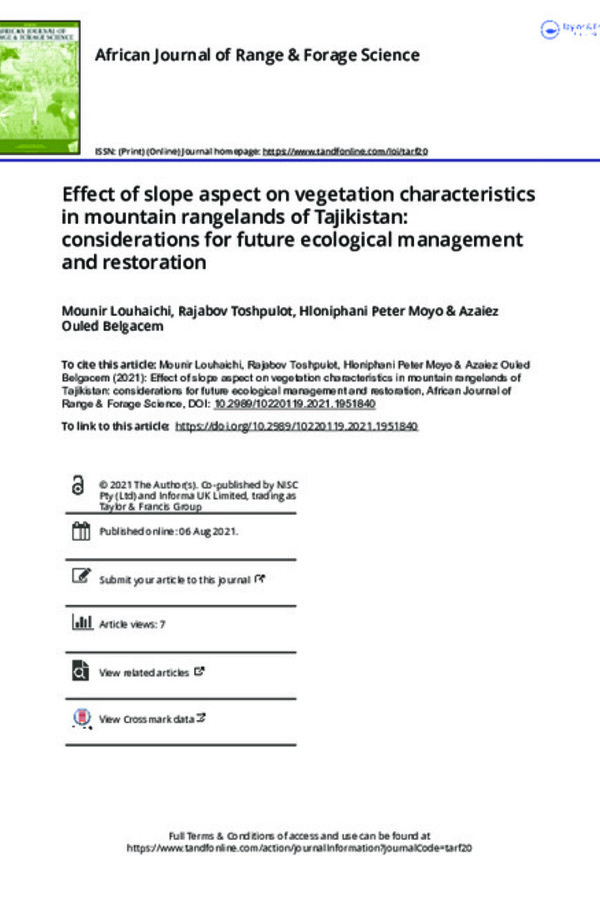

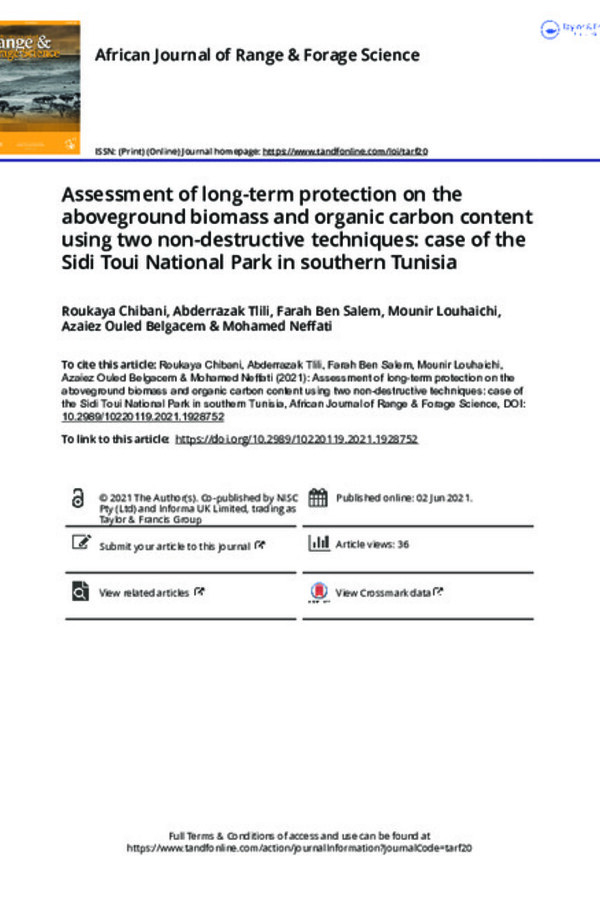
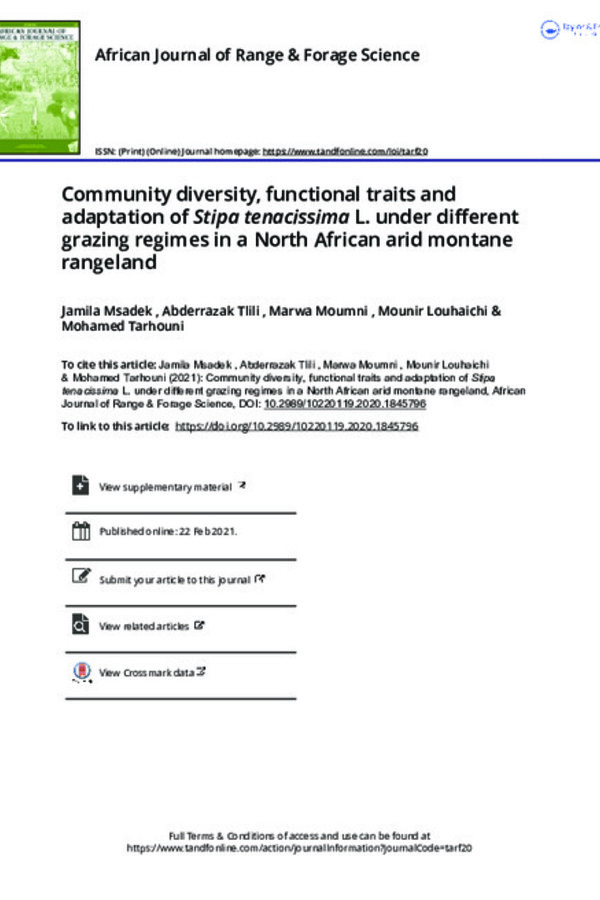
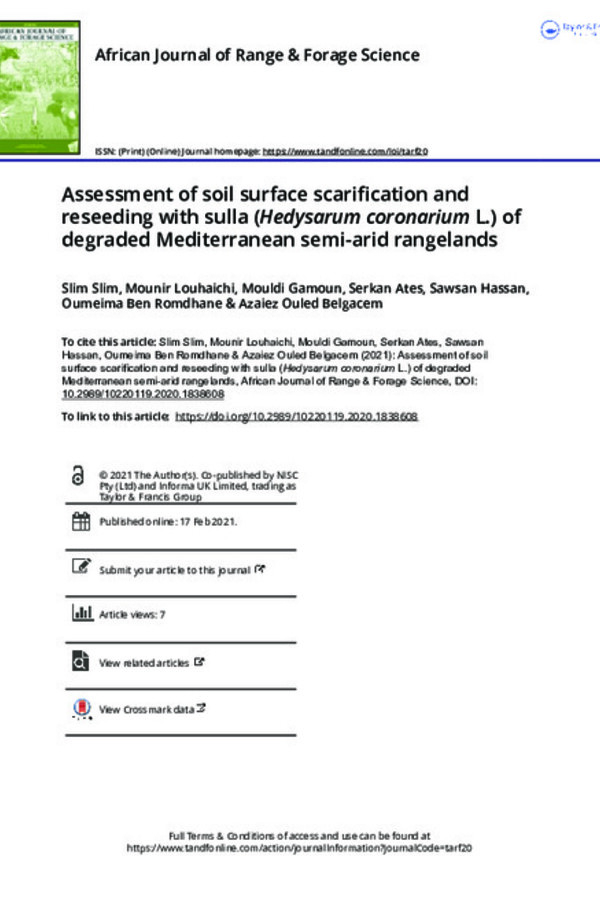
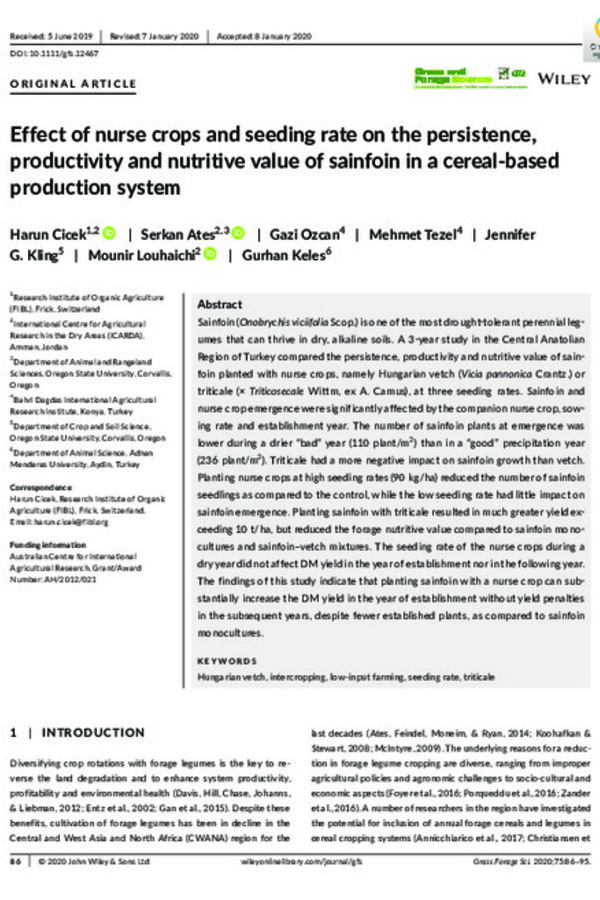
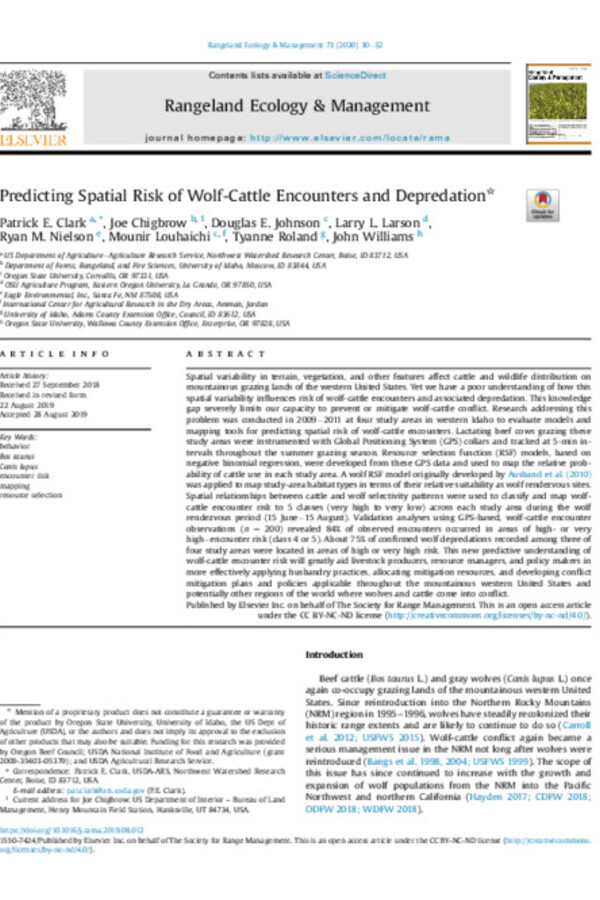
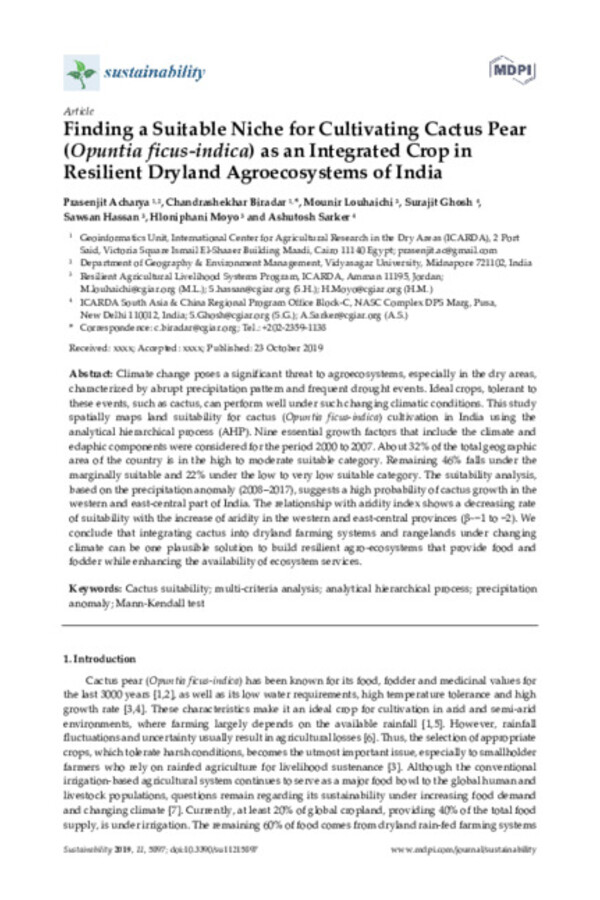
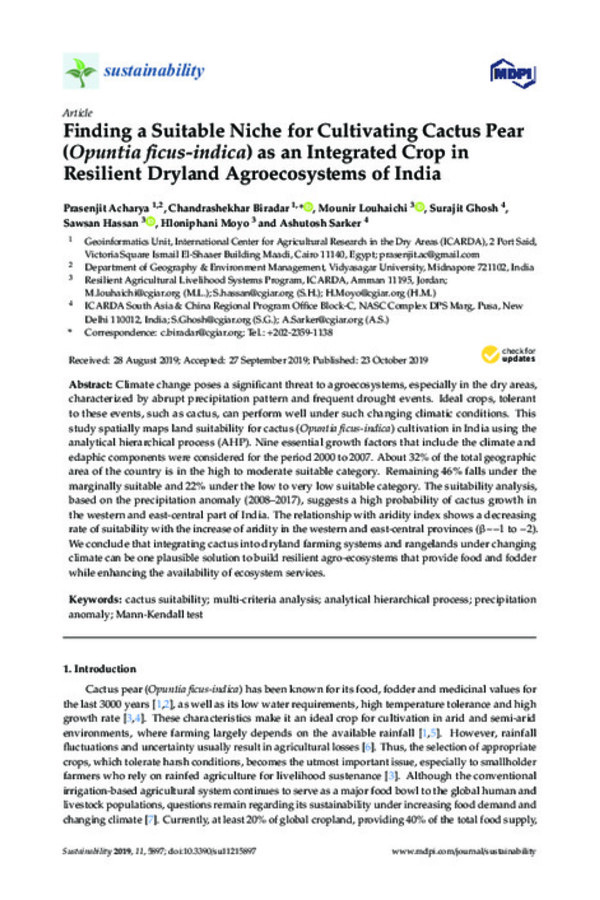
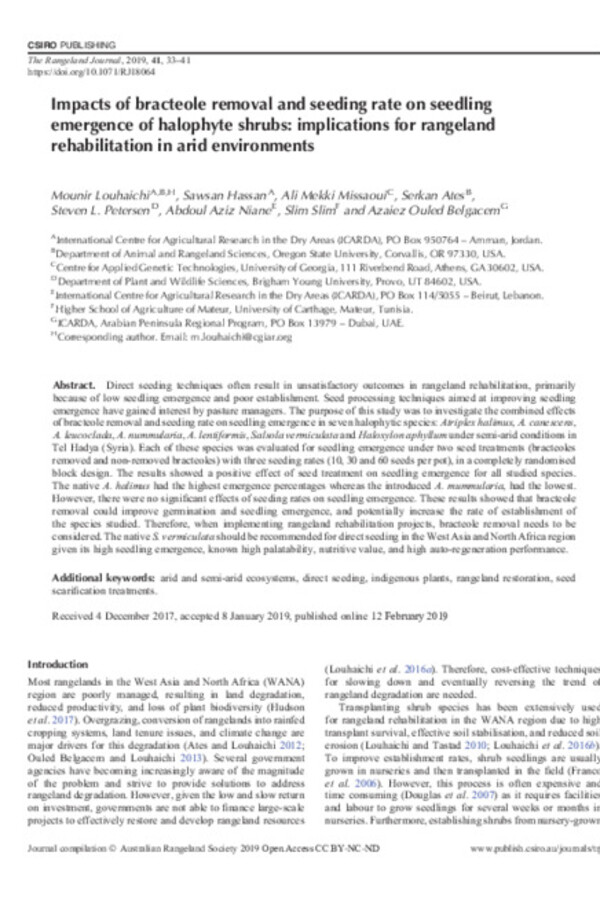

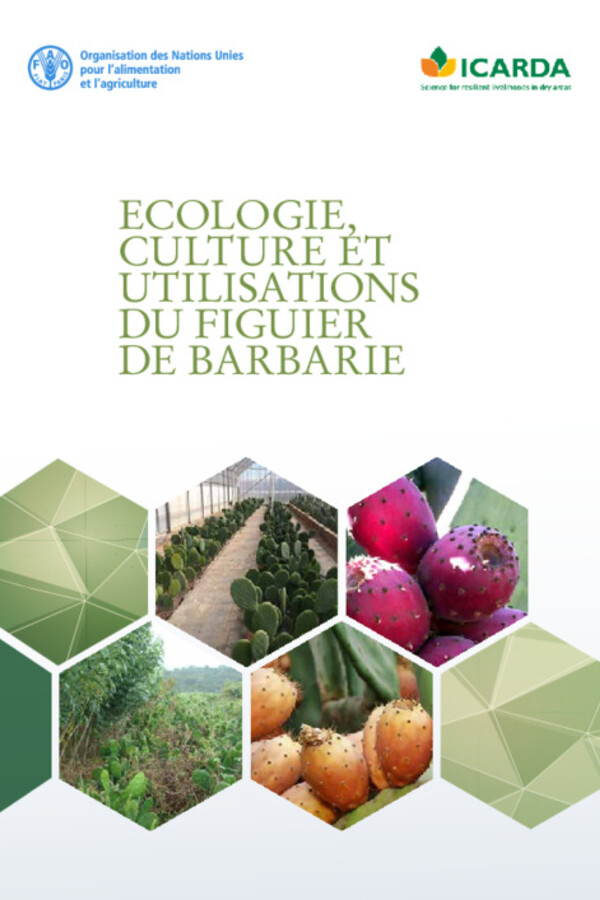
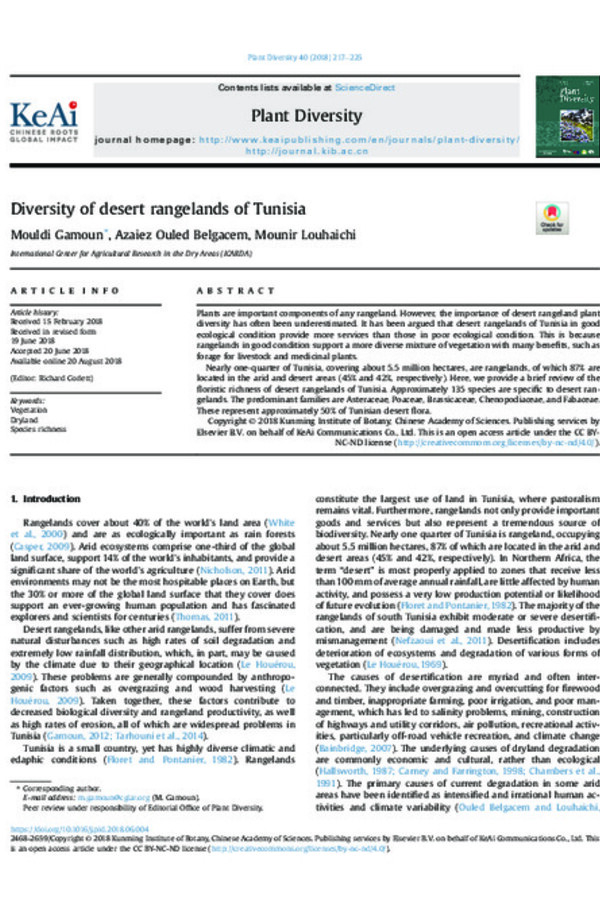
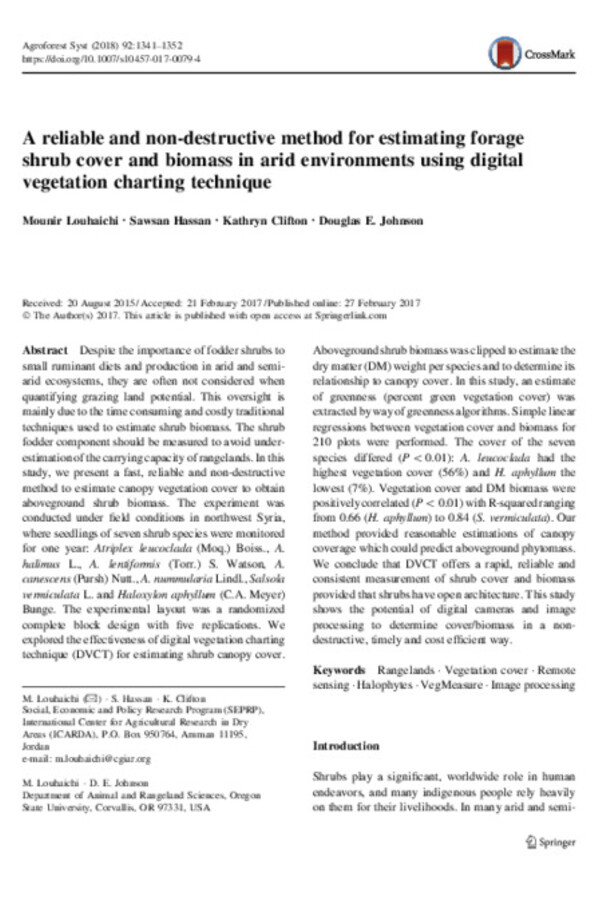
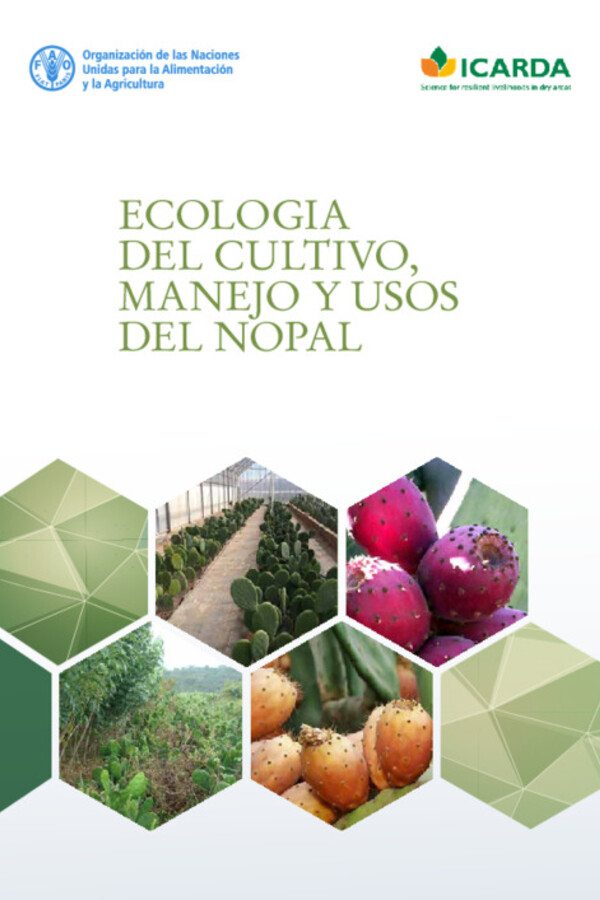
![Nutrient intake and utilization in sheep fed opuntia [Opuntia ficus-indica (L.) Mill.] in combination with conventional green and dry fodders Nutrient intake and utilization in sheep fed opuntia [Opuntia ficus-indica (L.) Mill.] in combination with conventional green and dry fodders](/sites/default/files/styles/display_06_verical/public/feeds/publications/5e8c84d55af4db244f1fa6a0ac8eb3b7.jpg?h=c974c01c&itok=v_Gnp0qn)
